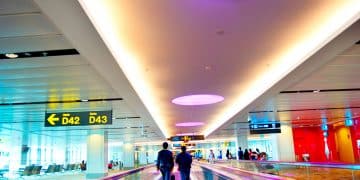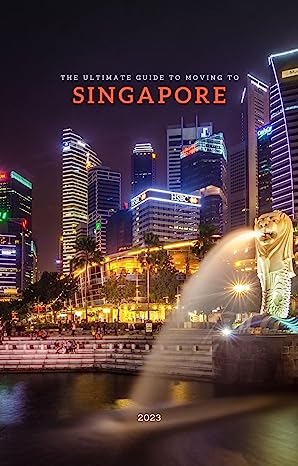What Is An S Pass Singapore: Requirements, Differences, Costs, and Benefits
Are you planning to work in Singapore? If so, you may need to apply for a work pass. One of the most popular types of work passes in Singapore is the S Pass. The S Pass is designed for mid-level skilled workers who wish to work in Singapore. In this article, we will explore what an S Pass is, who needs it, how to apply for it, and more.
Who needs S Pass Singapore?
Not everyone needs an S Pass to work in Singapore. The S Pass is intended for foreign workers who have a job offer in Singapore and meet the eligibility criteria. To be eligible for an S Pass, you must have a job offer that pays at least S$2,500 per month and meet other criteria such as a minimum educational qualification and work experience.
The S Pass is designed for foreign workers who have a job offer in Singapore and are looking for mid-skilled employment. This pass is suitable for those who have completed their education and training and have the necessary skills and experience to work in Singapore. It is important to note that the S-PaSS is not a work visa, but rather a work pass that is granted to foreign workers who meet specific eligibility criteria.
Employers in Singapore can apply for the S Pass on behalf of their foreign employees. The application process is straightforward and can be completed online. The employer must demonstrate that the foreign employee meets the eligibility criteria, including having a job offer in Singapore and earning a fixed monthly salary that is benchmarked against the top one-third of the salaries of Singaporean employees in similar positions.
Foreign workers who are interested in applying for the S Pass should ensure that they meet the eligibility criteria before applying. It is important to note that the S Pass is not suitable for all types of foreign workers, and there are other work pass options available depending on the nature of the job and the level of skill required.
What is the difference between Singapore S Pass and E Pass?
When it comes to working in Singapore, two of the most common work passes are the S-PaSS and the E Pass. While both passes allow foreign nationals to work legally in Singapore, there are some key differences between them.
The main difference between the S-PaSS and the E Pass is the eligibility criteria. The S-PaSS is meant for mid-level skilled workers, while the E Pass is meant for high-level skilled workers. The S-PaSS is also generally easier to obtain than the E Pass.
Another difference between the two passes is the salary requirement. To be eligible for an S-PaSS, the applicant must earn a minimum of SGD 2,500 per month, while for an E Pass, the minimum salary requirement is SGD 4,500 per month.
Additionally, the S-PaSS is valid for up to two years for first-time applicants, while the E Pass is valid for up to three years. The S-PaSS also has a quota system for certain sectors, while the E Pass does not.
In summary, the main differences between the S-PaSS and the E Pass are:
- Eligibility criteria: S-PaSS is for mid-level skilled workers, while E Pass is for high-level skilled workers
- Salary requirement: S-PaSS minimum salary is SGD 2,500 per month, while E Pass minimum salary is SGD 4,500 per month
- Validity: S-PaSS is valid for up to two years for first-time applicants, while E Pass is valid for up to three years
- Quota system: S-PaSS has a quota system for certain sectors, while E Pass does not
Is it easy to get S Pass in Singapore?
Getting an S Pass in Singapore is not easy. The employer must apply for the S Pass on behalf of the employee and meet the eligibility criteria, including quota restrictions. The employee must also meet the eligibility criteria, including earning a fixed monthly salary that is benchmarked against the top one-third of the salary range of Singaporeans in similar roles and having the necessary qualifications and work experience. The application process can take up to several weeks or months to approve, depending on the complexity of the case.
The difficulty of getting an S Pass in Singapore depends on various factors such as your qualifications, work experience, and the demand for your job. The Ministry of Manpower (MOM) assesses each application on a case-by-case basis. If you meet the eligibility criteria and have a job offer that meets the requirements, you may have a good chance of getting an S Pass. However, if your qualifications or work experience do not meet the requirements, your application may be rejected.
What is the advantage of S Pass?
The advantage of the S Pass is that it allows skilled foreign employees to work in Singapore and contribute to the economy. It also allows employers to fill skills gaps and improve their competitiveness. The S Pass holder can bring their family members to Singapore and enjoy the benefits of living in a modern and cosmopolitan city-state.
The S Pass holders are entitled to several benefits, including:
- Higher earning potential: S Pass holders must earn a minimum of $2,500 per month, which is higher than the minimum wage required for Work Permit holders. This means that S Pass holders have a higher earning potential than other foreign workers in Singapore.
- Employment Pass eligibility: After working in Singapore for a certain amount of time, S Pass holders may be eligible to apply for an Employment Pass, which is a higher-level work permit that offers additional benefits such as greater earning potential and more employment perks.
- Medical benefits: S Pass holders are entitled to mandatory medical insurance, which covers the cost of hospitalization and medical treatment in Singapore. This ensures that S Pass holders have access to quality healthcare while working in Singapore.
- Family benefits: S Pass holders are eligible to apply for Dependant’s Passes for their immediate family members, which allows their family to live and work in Singapore as well.
Overall, the S Pass offers several advantages to foreign workers who wish to work in Singapore. It provides a higher earning
How long can S Pass holder stay in Singapore?
The validity of the S Pass depends on various factors such as the duration of the job offer and the duration of your passport. Typically, the S Pass is valid for up to two years and can be renewed as long as you continue to meet the eligibility criteria.
How much does an S Pass cost Singapore?
The cost of an S Pass in Singapore includes a monthly levy and a one-time application fee. The monthly levy ranges from S$330 to S$650 depending on the sector and quota.
The one-time application fee is S$75. This fee is non-refundable and must be paid upon application.
Employers are responsible for paying the S-Pass application fee on behalf of their foreign employees. In some cases, employers may also need to pay a security deposit when applying for an S-Pass.
The security deposit is meant to ensure that the employer will be able to cover any costs related to the repatriation of the foreign employee if necessary. The amount of the security deposit varies depending on the nationality of the employee and the duration of their stay in Singapore.
It is important to note that the cost of an S-Pass is separate from any other fees that may be required, such as medical exams or visa fees. Employers should be prepared to cover all necessary costs related to the application process.
Overall, the cost of an S-Pass in Singapore is relatively affordable compared to other countries. However, it is important to factor in all associated costs when budgeting for the hiring of foreign employees.
How long does it take to approve S Pass?
The processing time for the S Pass application can take up to several weeks or months, depending on the complexity of the case. The employer must submit all the required documents and meet the eligibility criteria, including quota restrictions. The employee must also meet the eligibility criteria, including earning a fixed monthly salary that is benchmarked against the top one-third of the salary range of Singaporeans in similar roles and having the necessary qualifications and work experience.
Is S Pass needed in airport?
The S Pass holder may need to present their pass at the airport to enter or exit Singapore, depending on their nationality and the purpose of their visit. The pass can serve as a single-entry visa and inform the pass holder whether they need to undergo a medical examination when they are in Singapore.
What Is An S Pass Singapore? – Key Takeaways:
- The S Pass is a work pass designed for mid-skilled foreign employees in Singapore.
- Applicants must meet the eligibility criteria, including the salary requirement, and provide all the necessary documents.
- The approval process can take up to three weeks, and the duration of the pass is subject to the validity of the applicant’s passport.
- The S Pass allows foreign employees to work in Singapore and enjoy various benefits, including healthcare and CPF contributions.
- The cost of an S Pass in Singapore varies depending on the duration of the pass and the employer’s industry.
- S Pass holders can stay in Singapore for up to two years and the pass can be renewed.
- The cost of an S Pass application is SGD 75, and there is a monthly levy for employers.
If you’re looking to obtain an S Pass Singapore, you may also like these articles:
Best Places and Neighbourhoods to Live in Singapore
The Best English School In Singapore
How To Get Singapore Citizenship




